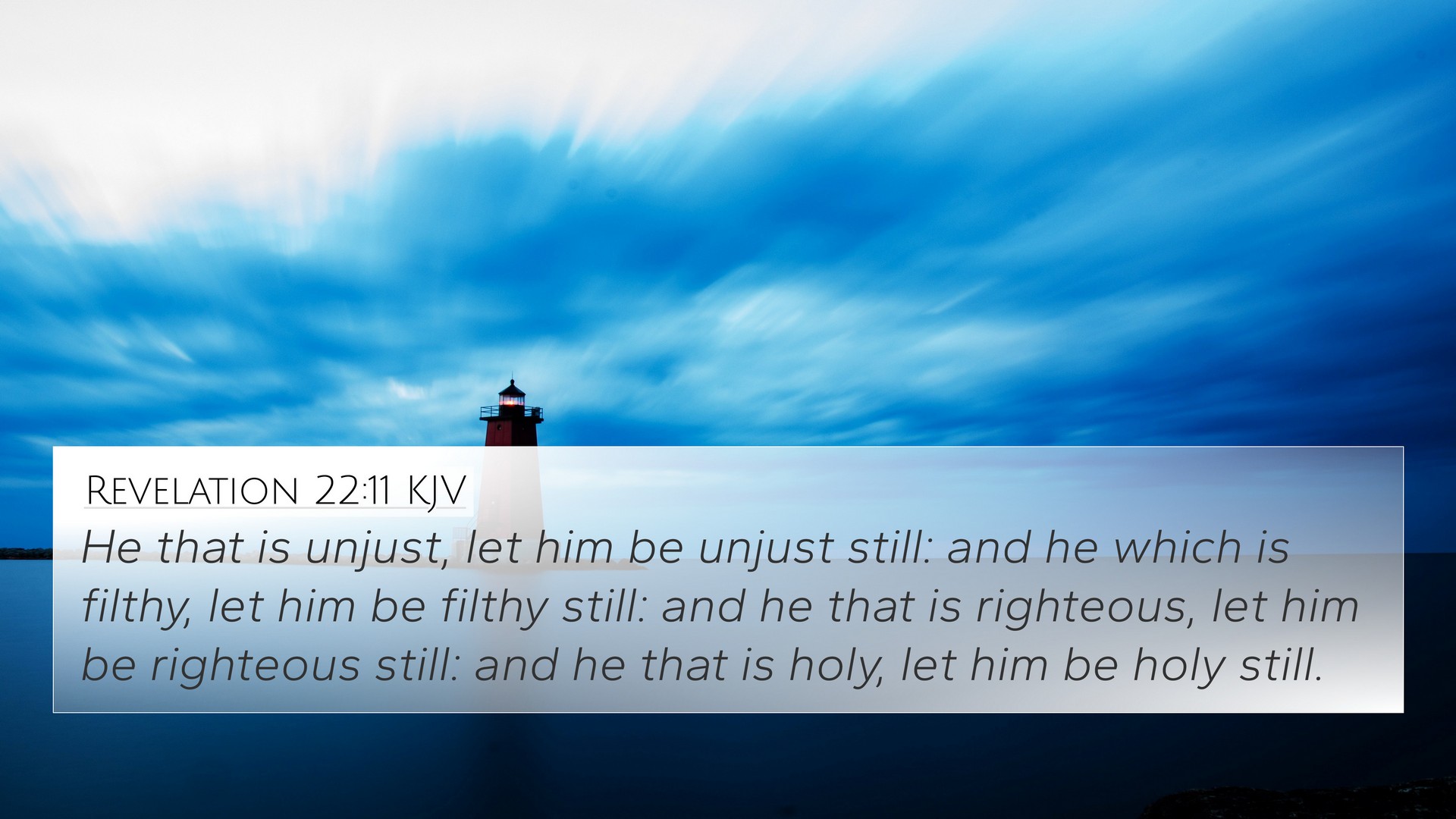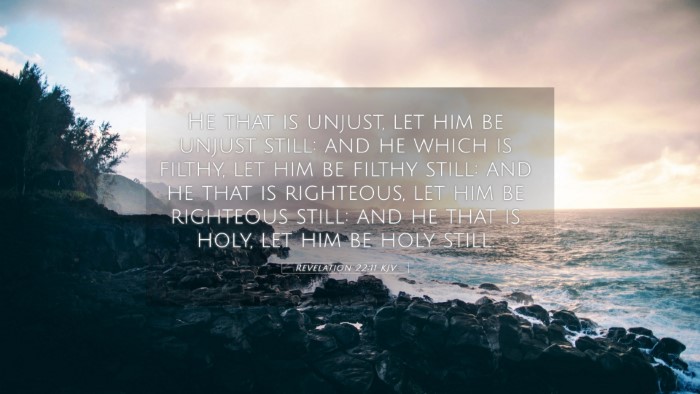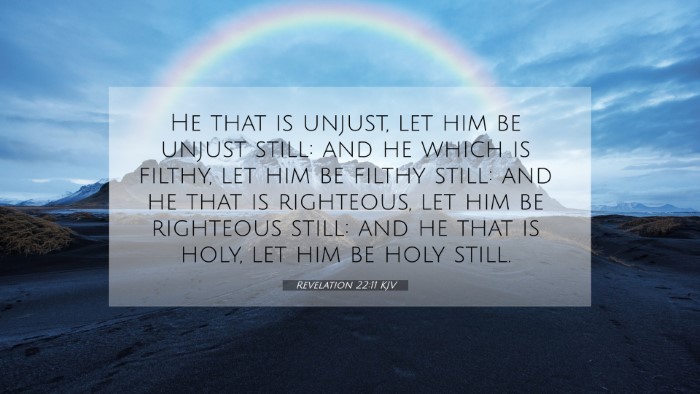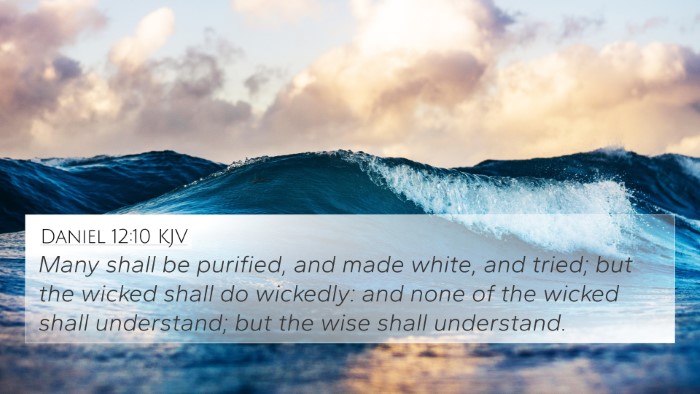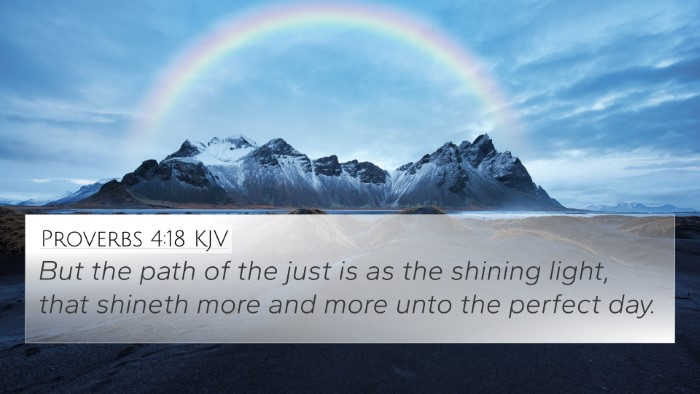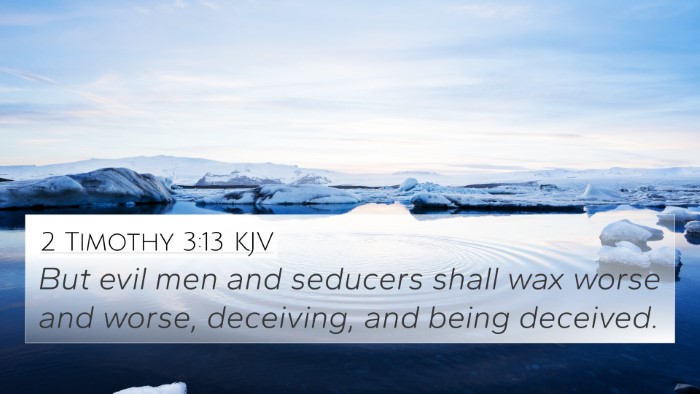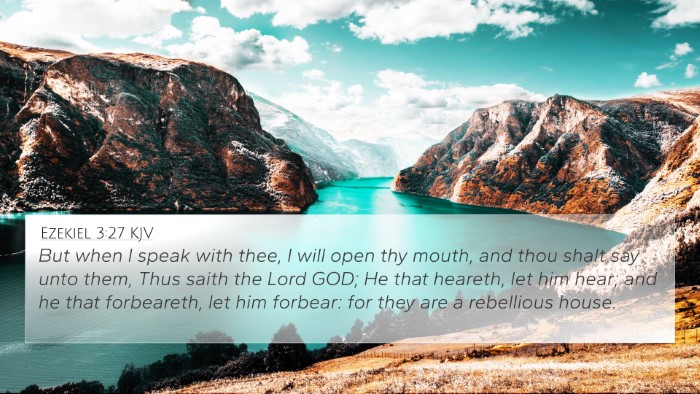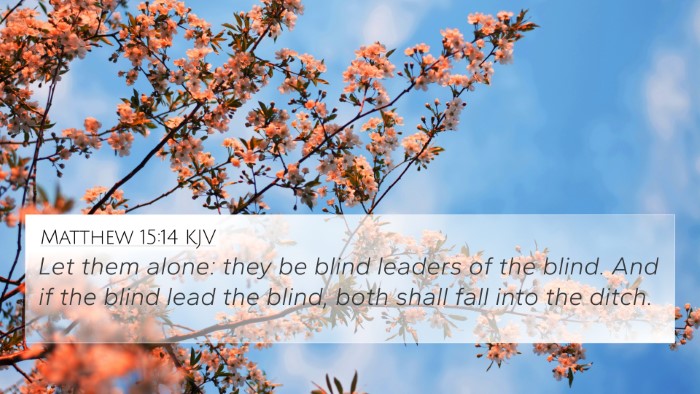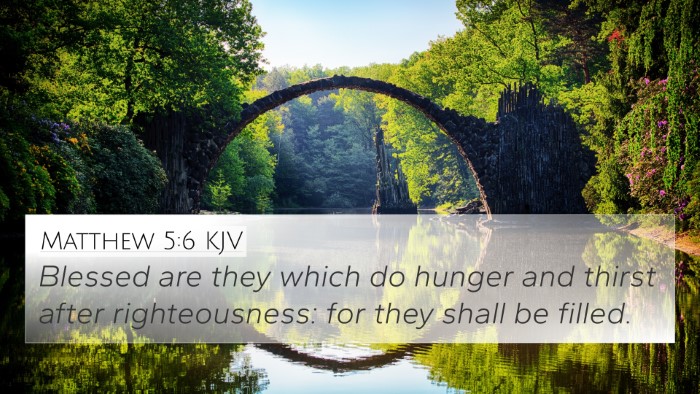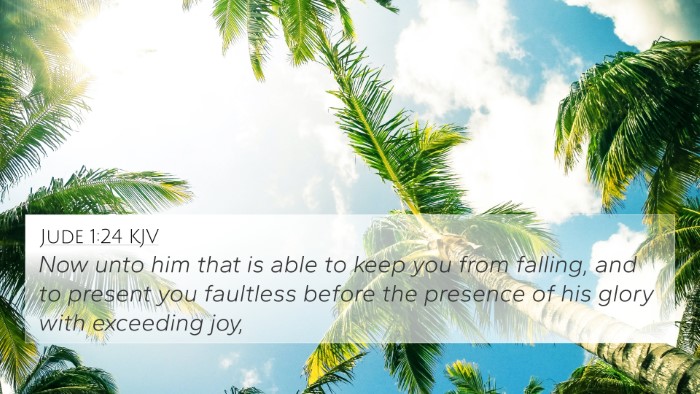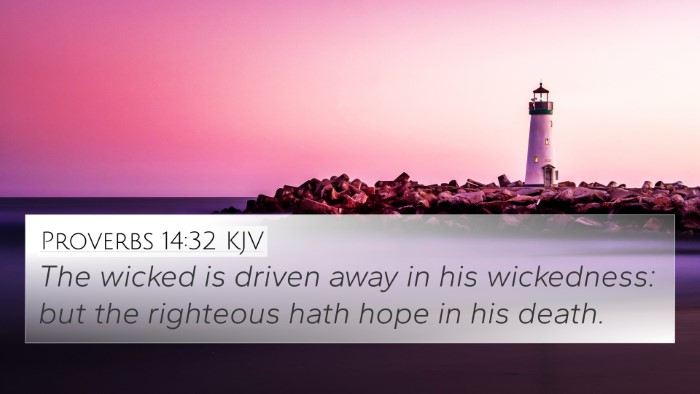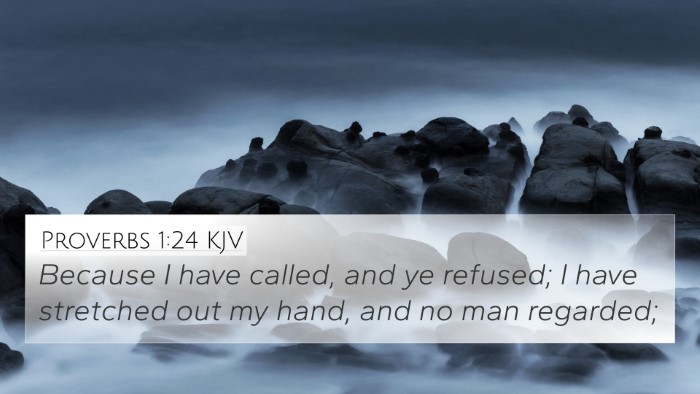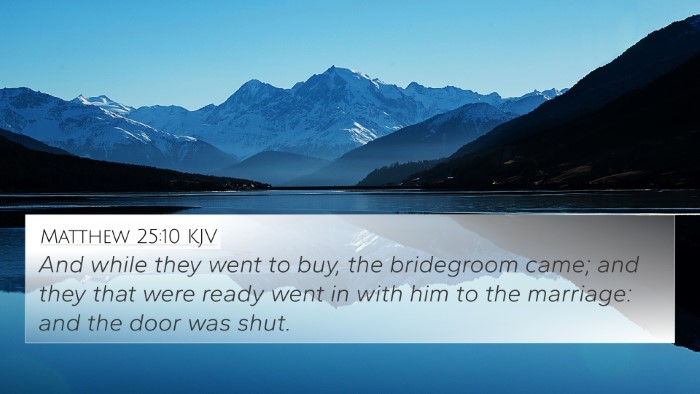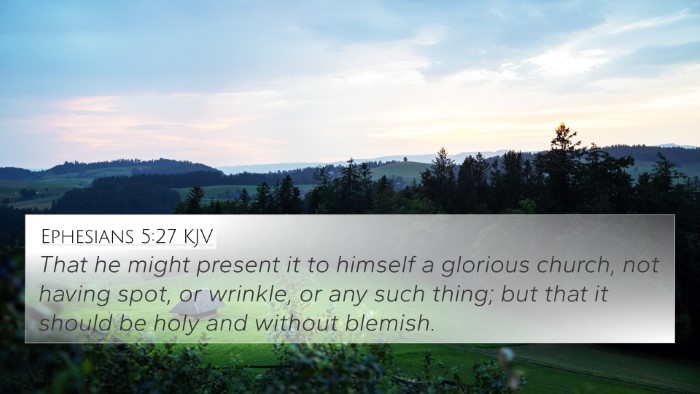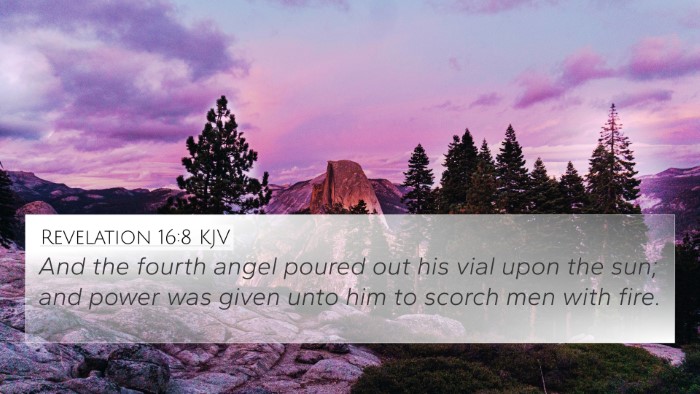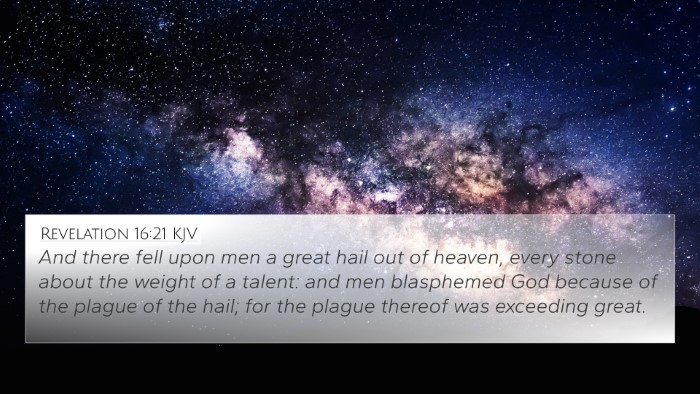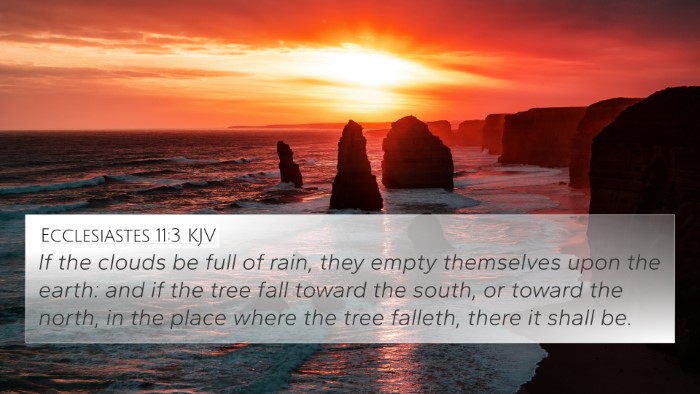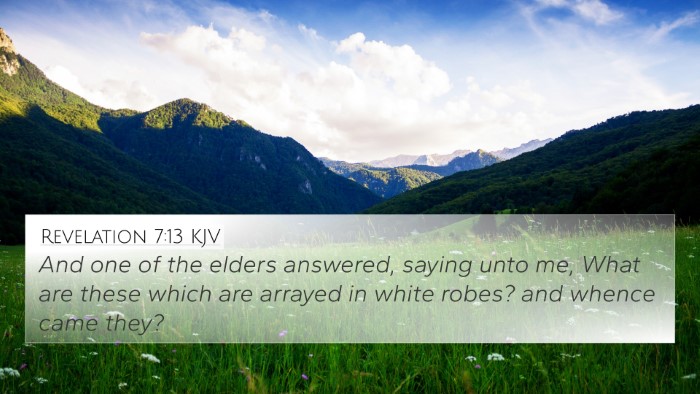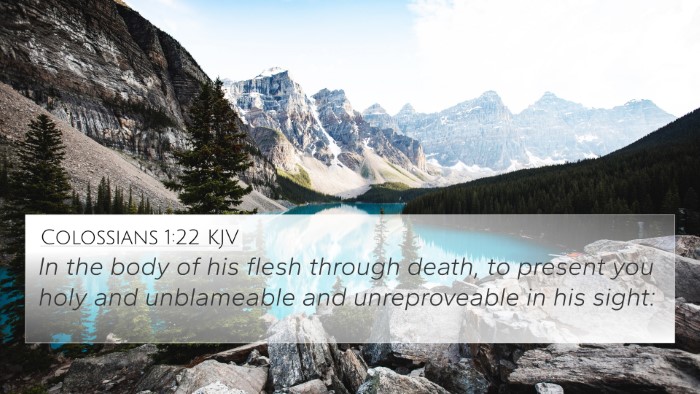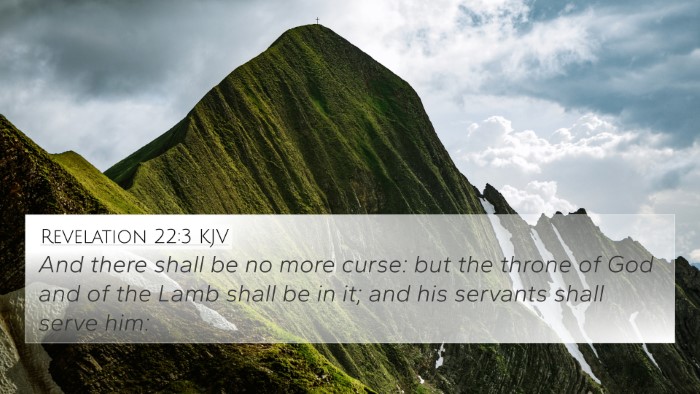Understanding Revelation 22:11
Revelation 22:11 states: "He that is unjust, let him be unjust still: and he which is filthy, let him be filthy still: and he that is righteous, let him be righteous still: and he that is holy, let him be holy still."
This verse encapsulates a profound message regarding the finality of one's moral state and the consequences of personal choices. Below we explore various insights from well-respected public domain commentaries.
Insights from Matthew Henry
Matthew Henry emphasizes that this verse highlights the unchanging nature of one's character at the end of time. He asserts that now is the time for action and repentance; after death, one's state will be eternally fixed. Thus, the call is to pursue righteousness actively while one still has the opportunity.
Insights from Albert Barnes
Albert Barnes provides a perspective on the implications of moral choices, noting that the division between the righteous and the wicked becomes clearer as the end approaches. He underscores that those who persist in their sinful ways will remain in that state, while the righteous will be confirmed in their righteousness. This also serves as a warning to urge believers to remain steadfast in faith.
Insights from Adam Clarke
Adam Clarke interprets this verse as a culmination of biblical themes regarding free will and divine judgment. He notes that this provides a sense of urgency for individuals to make choices that align with the Kingdom of God. Clarke suggests that this verse echoes the longstanding biblical truth that one’s ultimate fate reflects their choices in life.
Thematic Bible Verse Connections
This verse connects well with various biblical themes, highlighting the importance of living a life reflective of one's faith. Here are some related scriptures that provide further context and cross-references:
- Matthew 25:46 - "And these shall go away into everlasting punishment: but the righteous into life eternal." This verse parallels the themes of judgment and righteousness found in Revelation 22:11.
- Daniel 12:10 - "Many shall be purified, and made white, and tried; but the wicked shall do wickedly: and none of the wicked shall understand; but the wise shall understand.” This emphasizes the distinction between the righteous and the wicked at the end of time.
- Galatians 6:7-8 - "Be not deceived; God is not mocked: for whatsoever a man soweth, that shall he also reap." This reiterates the theme of consequences based on one's choices and actions.
- Ephesians 5:5 - "For this ye know, that no whoremonger, nor unclean person, nor covetous man, who is an idolater, hath any inheritance in the kingdom of Christ and of God." This explains the gravity of moral conduct and its implications for inheritance in the Kingdom.
- Philippians 3:19 - "Whose end is destruction, whose God is their belly, and whose glory is in their shame, who mind earthly things." This serves as a warning about the final fate of those who remain ungodly.
- Revelation 21:27 - "And there shall in no wise enter into it any thing that defileth, neither whatsoever worketh abomination, or maketh a lie: but they which are written in the Lamb's book of life." This underscores the finality of one’s spiritual condition.
- Romans 1:28 - "And even as they did not like to retain God in their knowledge, God gave them over to a reprobate mind, to do those things which are not convenient." This reflects the nature of humanity's choice and God's response to it.
Conclusion
In conclusion, Revelation 22:11 serves as a profound statement about the permanence of one's spiritual condition upon death. The insights from various commentators together with the thematic links to other scriptures provide a comprehensive understanding of the verse's implications.
Understanding these connections can enhance our Bible verse cross-referencing efforts and deepen our appreciation for the thematic Bible verse connections throughout Scripture.
